Working Life in Holyoke.
By James W. Carney
A bright boy wrote the following essay on Man:—"Man is an animal that stands up; he is not very big, and he has to work for a living." This description admits of some exceptions, but upon the whole if covers the case very well. And Holyoke is a good place in which to become acquainted with the people who work for a living. In Holyoke, work is the order of the day, and to a large extent, of the night also. It is the order of six days in the week, and in too many cases of seven.
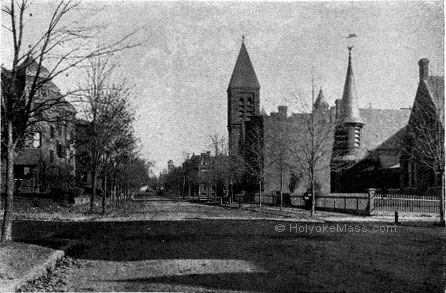
Maple Street from Essex.
|
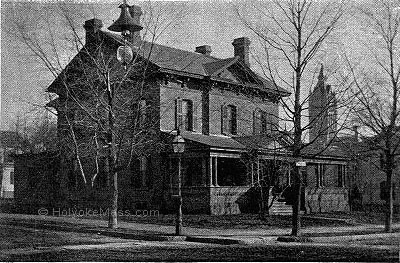
Residence of Mrs. S.S. Chase.
|
I have no wish to aggravate social discontent, of which there is too much already. Most men, employers or employes, are anxious to get as much money as they can lawfully. Business is, in most cases, conducted under sharp competition, which does not afford a very large leeway for philanthropic principles. Nevertheless, let no man deny that philanthropic principles should have a place in business; let no man repeat the guilty apology of Cain, "Am I my brother’s keeper?" This applies equally to employers and to employed. Employers sometimes take unfair advantage of their workmen, and workmen sometimes ask unjust things of their employers. In both cases the moral law is violated. What all men should remember, is that might does not make right. I cannot claim to speak as an expert, and yet it would do little good to treat this subject in an abstract way, and make no specific suggestions. Accordingly, I shall venture to call public attention to a few matters that seem to demand considerations.
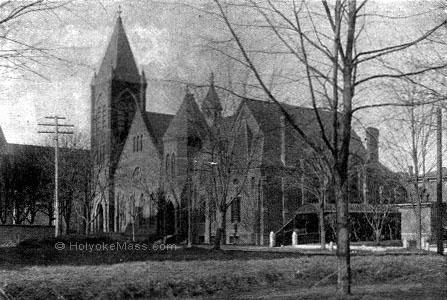
Methodist Church — Appleton Street.
|
The first of these is the employment of so many children—by which term let us indicate boys and girls under eighteen and over thirteen, the age under which, in Massachusetts, the employment of children is forbidden. The laws in our state upon this subject are perhaps the most advanced in the country, and yet it is to be questioned whether a greater degree of restriction is not necessary. The young have special need of protection. To youth add poverty, and the need of legal defense cannot be gainsaid. This is now provided in part; but it ought to be increased, and the employers of children should be particularly mindful of their responsibilities. The subject is of the greatest importance, because upon it depends the future. If it is a poor economy to keep a colt at hard work, how is it of a boy or girl? And if the latter is bad economy, is not the humanity of it to be questioned? It will be said that the children help support the family. This is very well, if they can do it without injury to their own future. But let us be careful not to injure the health and prospects of future fathers and mothers, for to do this is to invite race degeneration.
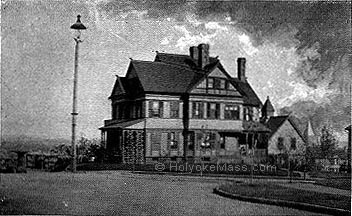
Residence of Charles H. Richards.
|
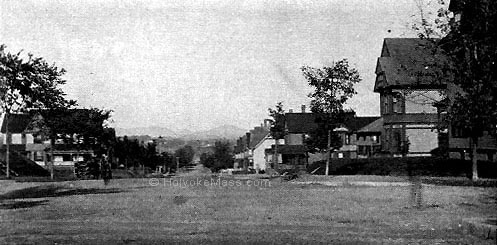
Looking down Beech Street from Cabot.
|
I have been requested by one of the mill workers to refer to the sanitary conditions; in particular, to overheating and insufficient ventilation. These matters require no argument. Vitiated air poisons the blood, provokes pain and disease, shortens life. To work half a day in a very hot room, and then go out into our northern winter or spring—who can think of it without being reminded of pneumonia and consumption? Cotton may run better, and paper be more readily calendered in a hot room, but flesh and blood are more valuable, or ought to be, than cotton or paper.
© Laurel O’Donnell 1996 - 2006, all rights reserved
This document may be downloaded for personal non-commercial use only
and may not be reproduced or distributed without permission in any format.
This is an edited adaptation from the original publication.
|